On Sept. 1, Hadiza Umaru Ali, a displaced and single mother of seven in Maiduguri went out to sell bean cakes in the morning as she does daily. When later that day she returned to her tent in the Shuwari IDP camp, she found that she was now without a home. Her tent had been flooded.
“I don’t know what to do,” she says helplessly. “The sky is cloudy again. I have been roaming and confused about what to do next.”

In the same camp, not very far away from Hadiza, another IDP, Maryam Mohammad, 65, also stood by her tent. It was flooded, too, and she was attempting to fix it. She hammered nails tirelessly into the wood. She repeatedly lifted her belongings that were in the water, then realising there was nowhere else to put them, dropped them into the water again in confusion. The anguish in her eyes was evident as she described her despair.
“The sky is still cloudy,” she said, worriedly. “And I don’t have a shelter. Water seeps through my leaking room when it rains.”
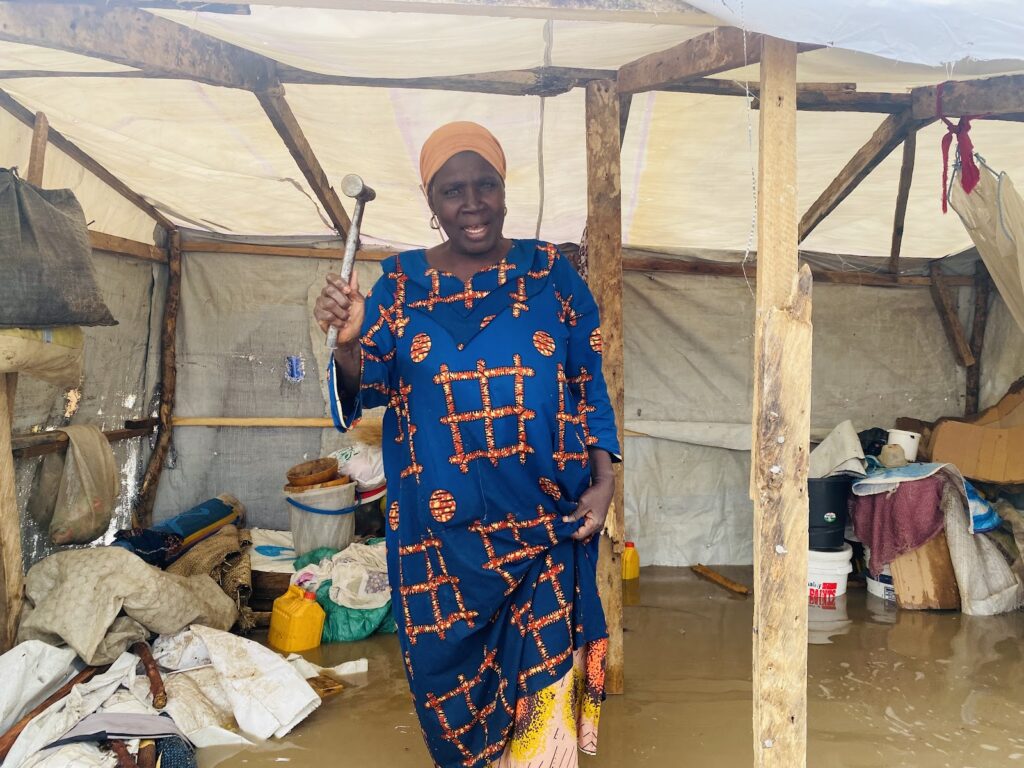
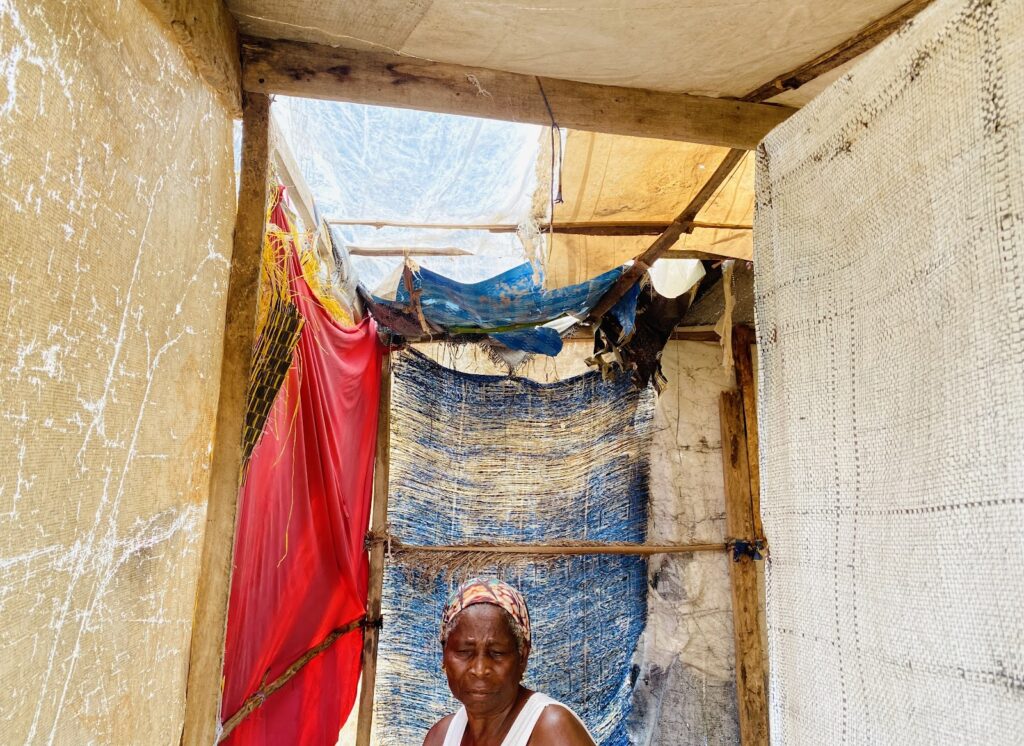
The IDPs, originally displaced by the Boko Haram crisis nearly a decade ago, have been shifting between different locations in response to landowners’ requests for evacuation, and they are still yet to find a long-lasting solution.
They had started relocating to their current location when the rainy season started. Unknown to them, the location is prone to flooding. By the time they realised this, the option of retracing their steps back to their previous haven had been entirely extinguished, owing to the landowner’s stern warning.
“We had been trying to find a solution for a while, and finally, someone nearby offered us approximately four plots of land for rent at the rate of ₦1,000,000. This new location could accommodate around 200 people, and we tasked each household with paying ₦5,000,” said Zanna Rebo, the camp chairman and the head of Fulani herders in Borno state. “Paying such an amount gives us assurance and hope to stay for a while without eviction,” he added.
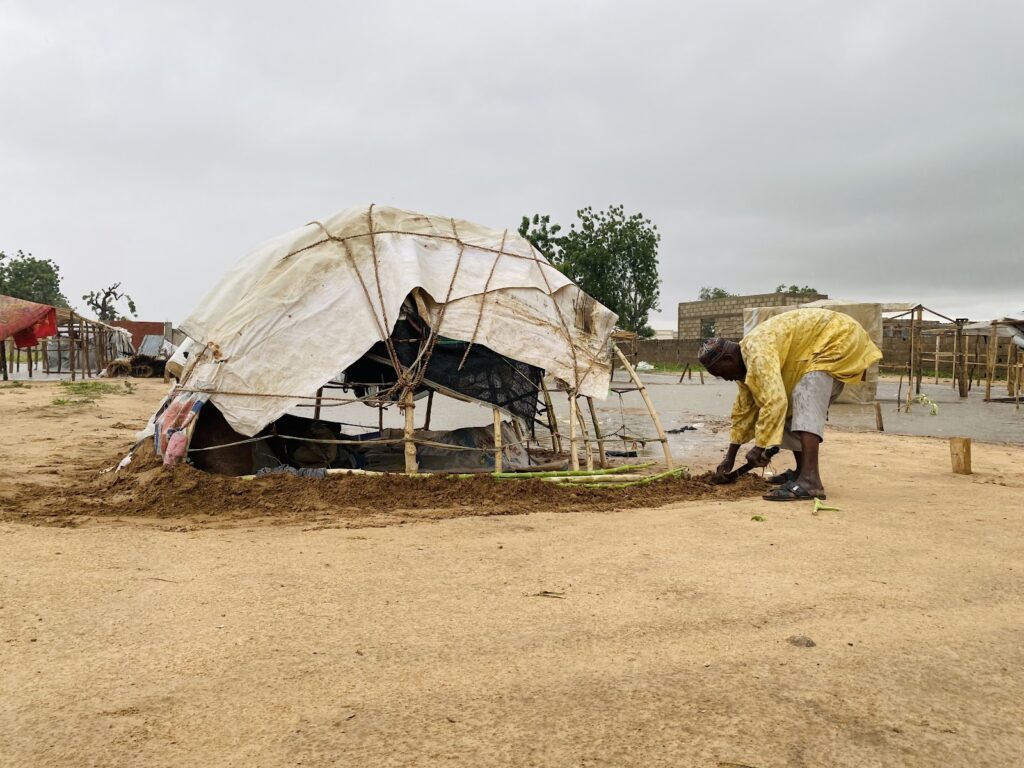
Other displaced persons had found other lands nearby and settled, but they knew at any moment, the landowners may request access to their land and they would have to move again.
Some of the IDPs had already settled in the new location, but others were still in the process of moving when the heavy rainfall occurred. Now, they find themselves without shelter again.
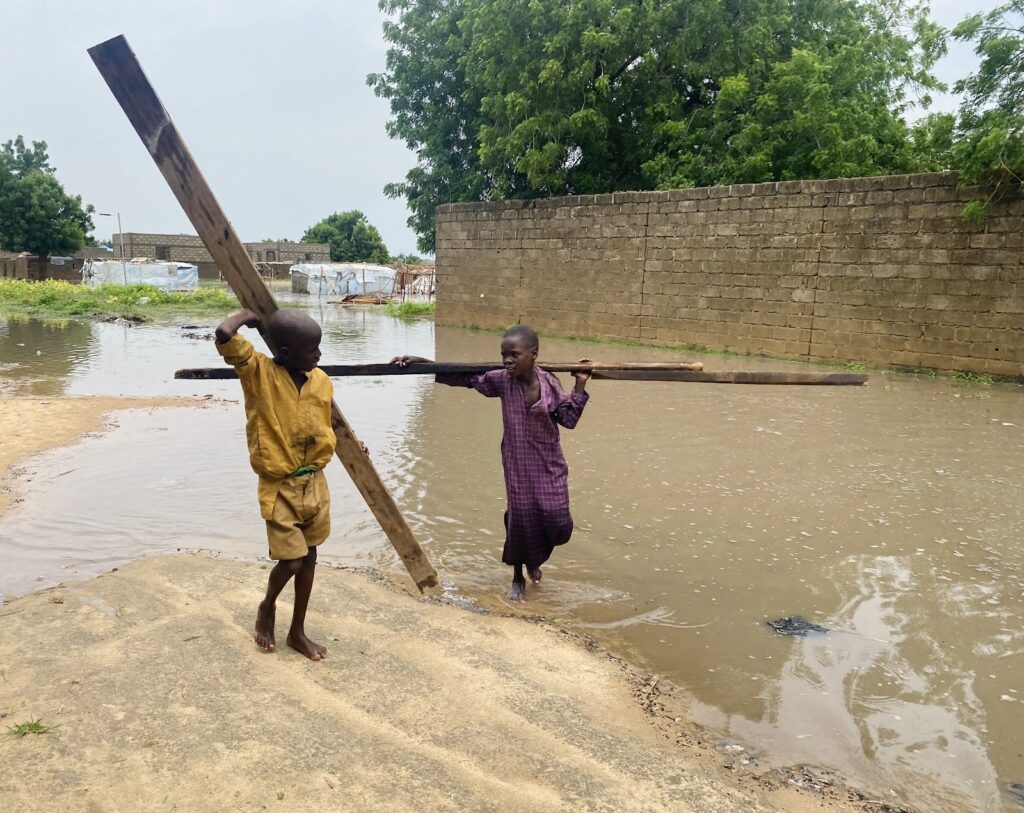
Zanna Rebo, the camp chairman, told HumAngle of their deep frustration, emphasising that they had tirelessly pleaded with the government to address their plight, yet their cries for help seemed to go unheard. They were evicted from their previous location a week ago.
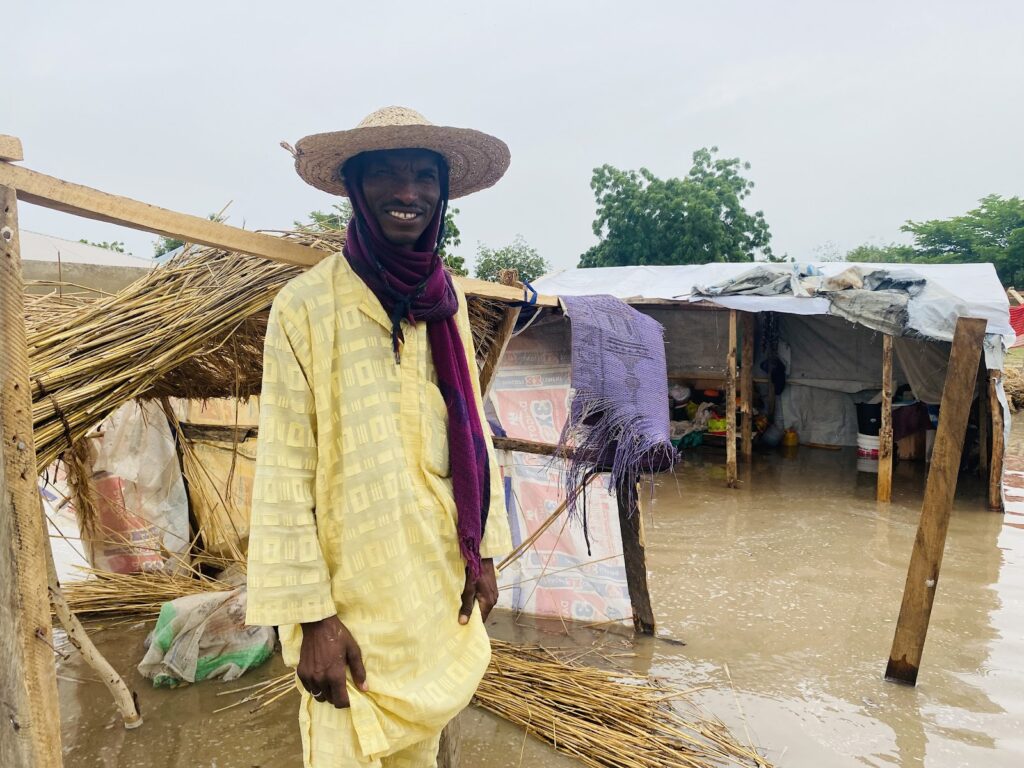
“We were forced to leave our previous location where we had been settled for five years. Since then, we have continuously resettled in different lands near us, only to be later evicted,” Zanna Rebo Boderi shared.
Support Our Journalism
There are millions of ordinary people affected by conflict in Africa whose stories are missing in the mainstream media. HumAngle is determined to tell those challenging and under-reported stories, hoping that the people impacted by these conflicts will find the safety and security they deserve.
To ensure that we continue to provide public service coverage, we have a small favour to ask you. We want you to be part of our journalistic endeavour by contributing a token to us.
Your donation will further promote a robust, free, and independent media.

